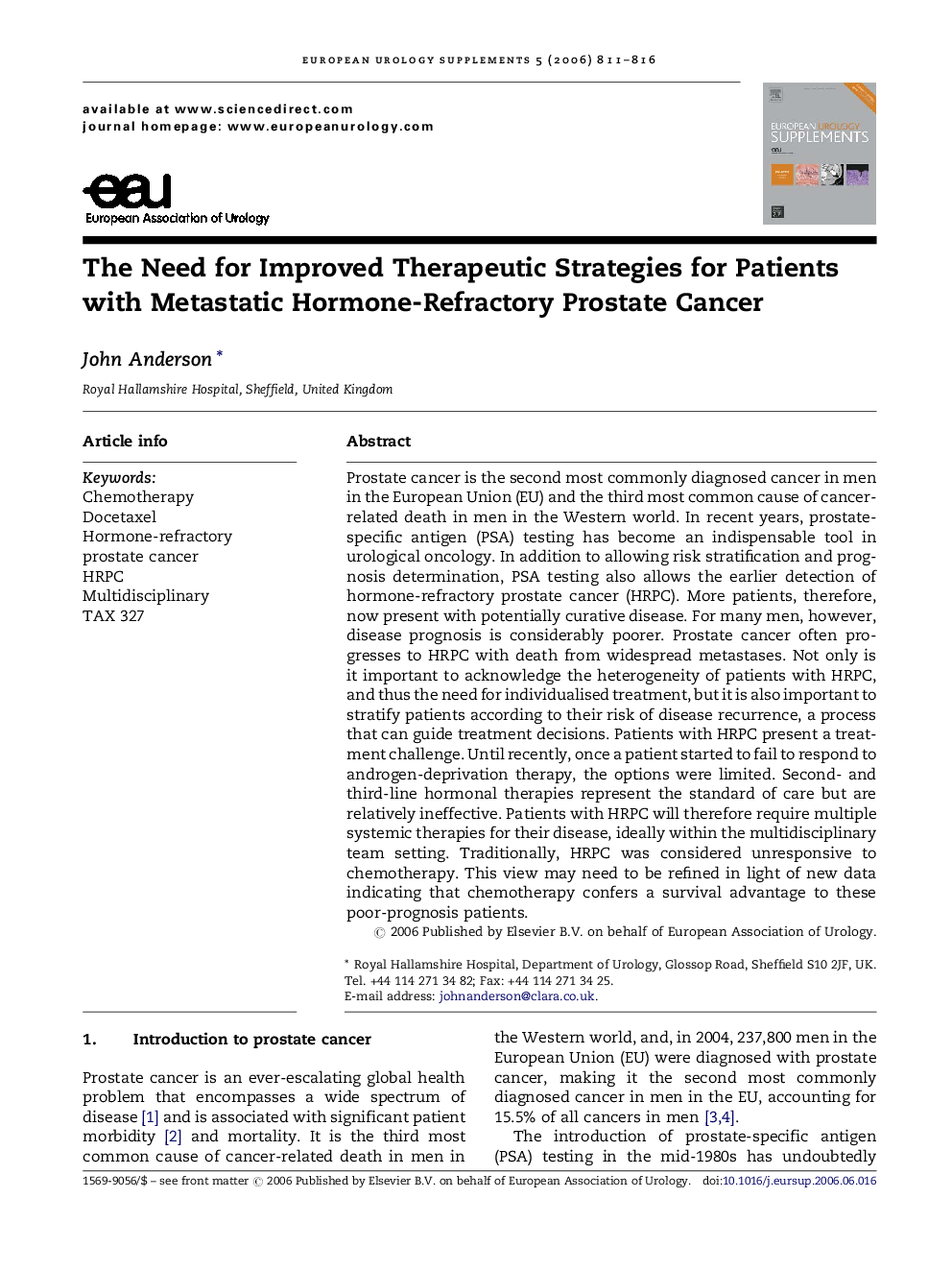| Article ID | Journal | Published Year | Pages | File Type |
|---|---|---|---|---|
| 3931262 | European Urology Supplements | 2006 | 6 Pages |
Prostate cancer is the second most commonly diagnosed cancer in men in the European Union (EU) and the third most common cause of cancer-related death in men in the Western world. In recent years, prostate-specific antigen (PSA) testing has become an indispensable tool in urological oncology. In addition to allowing risk stratification and prognosis determination, PSA testing also allows the earlier detection of hormone-refractory prostate cancer (HRPC). More patients, therefore, now present with potentially curative disease. For many men, however, disease prognosis is considerably poorer. Prostate cancer often progresses to HRPC with death from widespread metastases. Not only is it important to acknowledge the heterogeneity of patients with HRPC, and thus the need for individualised treatment, but it is also important to stratify patients according to their risk of disease recurrence, a process that can guide treatment decisions. Patients with HRPC present a treatment challenge. Until recently, once a patient started to fail to respond to androgen-deprivation therapy, the options were limited. Second- and third-line hormonal therapies represent the standard of care but are relatively ineffective. Patients with HRPC will therefore require multiple systemic therapies for their disease, ideally within the multidisciplinary team setting. Traditionally, HRPC was considered unresponsive to chemotherapy. This view may need to be refined in light of new data indicating that chemotherapy confers a survival advantage to these poor-prognosis patients.
